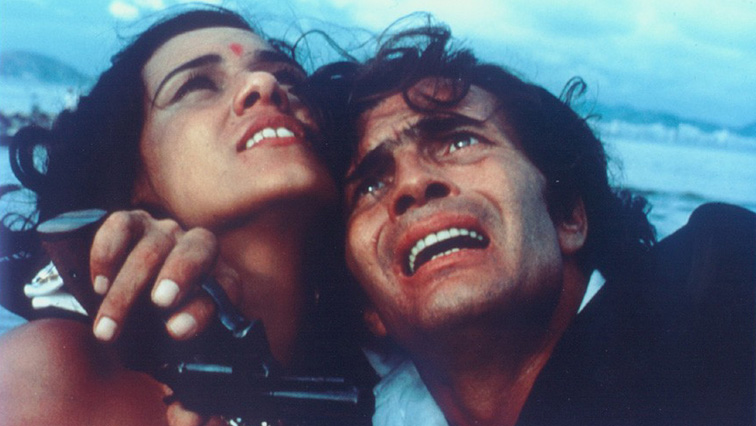
25 October 2012 20:30, KASKcinema, Gent. A Courtisane event.
introduced by Stoffel Debuysere
“Revolution is magic because it is the unforeseeable within dominating reason. It must be dominating reason’s impossibility to comprehend such that that same dominating reason denies itself and devours itself in the face of its impossibility to comprehend. (…) Revolutionary art must be magic capable of bewitching man to such a degree that he can no longer stand to live in this absurd reality. Overcoming this reality, Borges wrote the most liberating irrealities of our times. His aesthetic is a dream’s.”
“Political cinema means nothing if it’s the product of moralism, anarchy, opportunism. Only a wretched like me could say that art has meaning for the wretched, and that’s why I’m not ashamed to say that my films are the product of grief, of hate, of a frustrated impossible love, of the incoherence of underdevelopment.”
– Glauber Rocha
A Idade da Terra
1980, 35mm, color, sound, Portugese spoken, English subtitled, 140′
“Like nothing known to man. A torrential, hallucinatory film. A filmic UFO, no more, no less…” Serge Daney’s description of Glauber Rocha’s very last film is right on the nose: A Idada Da Terra is, just as the whole of Rocha’s oeuvre, made in the image of his much loved Brazil, that extravagant nation with its “verbose, loquacious, energetic, sterile and hysterical people”. The result is a boundless cinema-opera as radical alternative to the domineering American operetta, a dissonant anti-symphony as final convulsion of the tricontinental dream. At the same time the film can be considered as Rocha’s response to the Mexican adventures of Eisenstein, his shining example, whose well-intended attempts to translate the “Third World” in esthetic terms was for him essentially the same “as taking the word of God (and the interests of the conquistadors) to the Indians”. Or still: as a rectification of the evangelic interpretations of Pasolini, his discordant brother in arms, whose Oedipal Christ is here displaced with a more militant one, “a new, primitive phenomenum, in a very new civilization”. Catholic rituals and Afro-Indian gods, rural mysticism and revolutionary politics, Brahms and Villa-Lobos: the work of Glauber Rocha, angel-demon of the Brazilian “Cinema Novo”, defies every attempt at unequivocal classification or definition. In the light of overbearing repression, hypocrisy and consensus there is no place for evasive proposals: “the worst enemy of revolutionary art is its mediocrity”.
In the context of the research project “Figures of Dissent (Cinema of Politics, Politics of Cinema)”
KASK / School of Arts
See also “The death of Glauber Rocha” by Serge Daney.